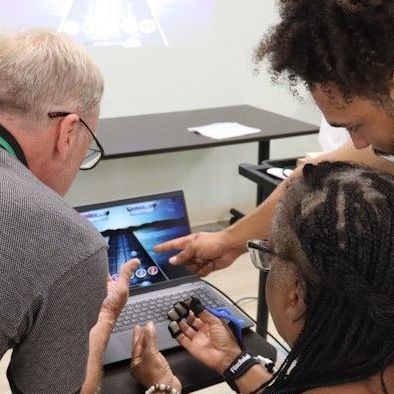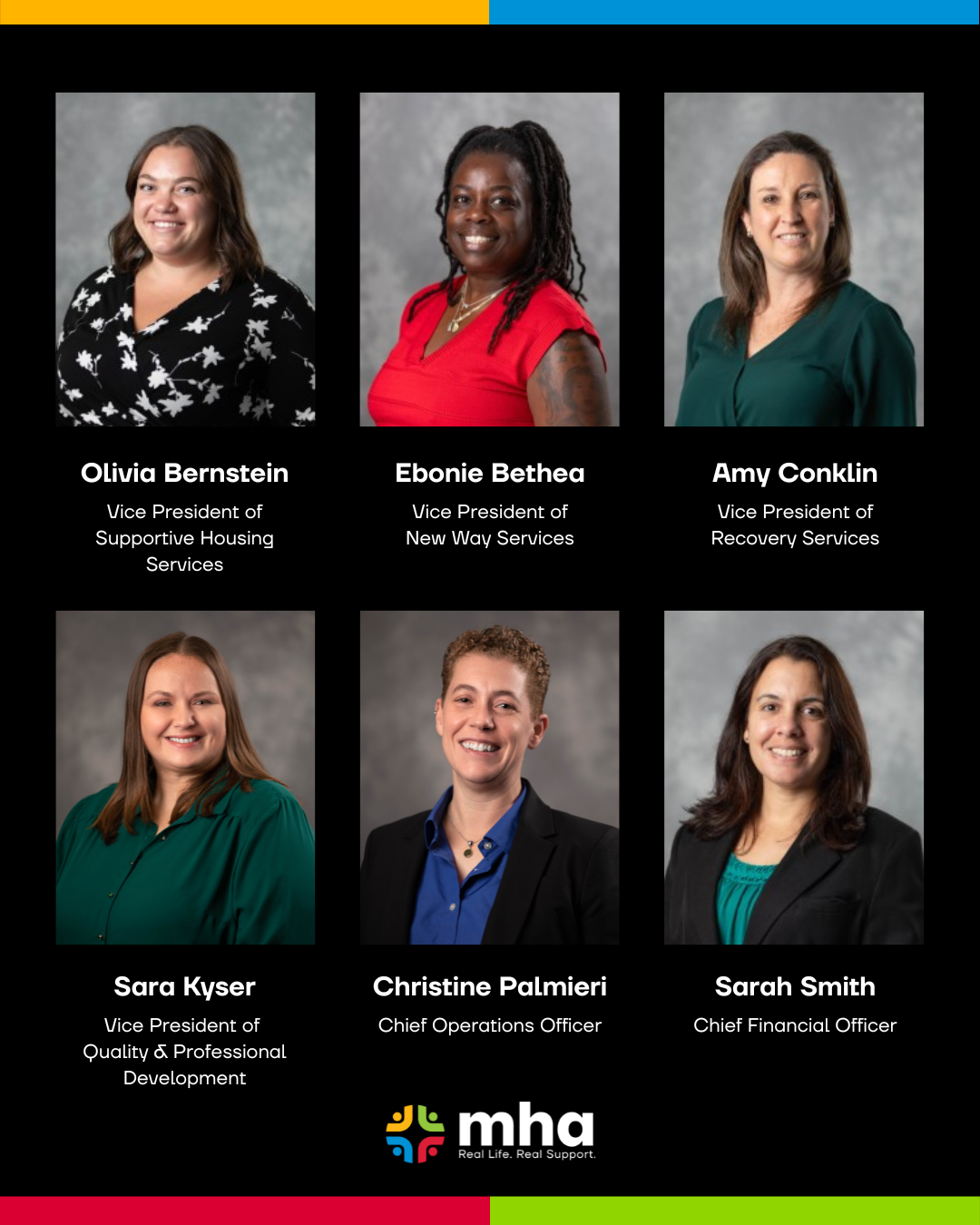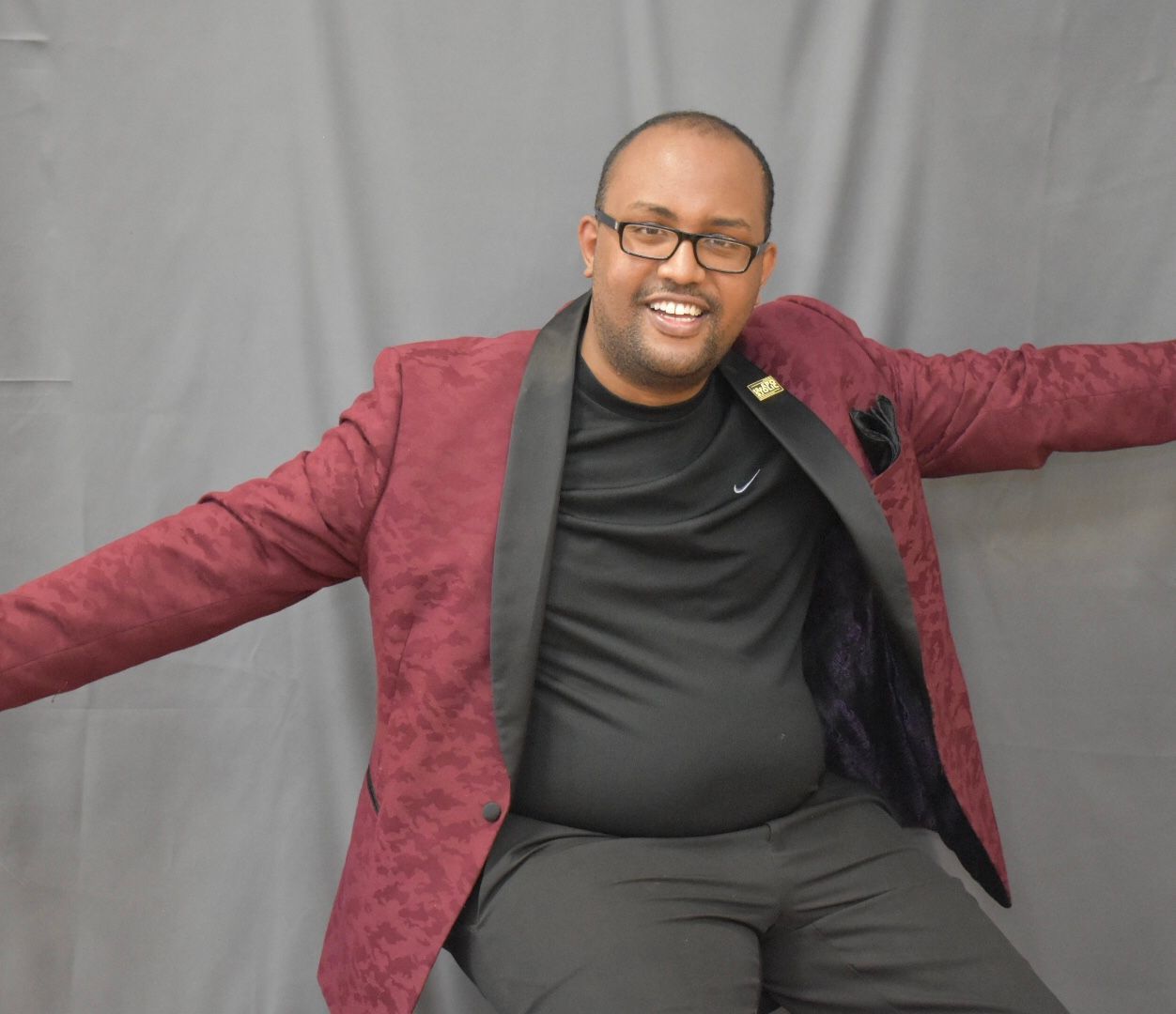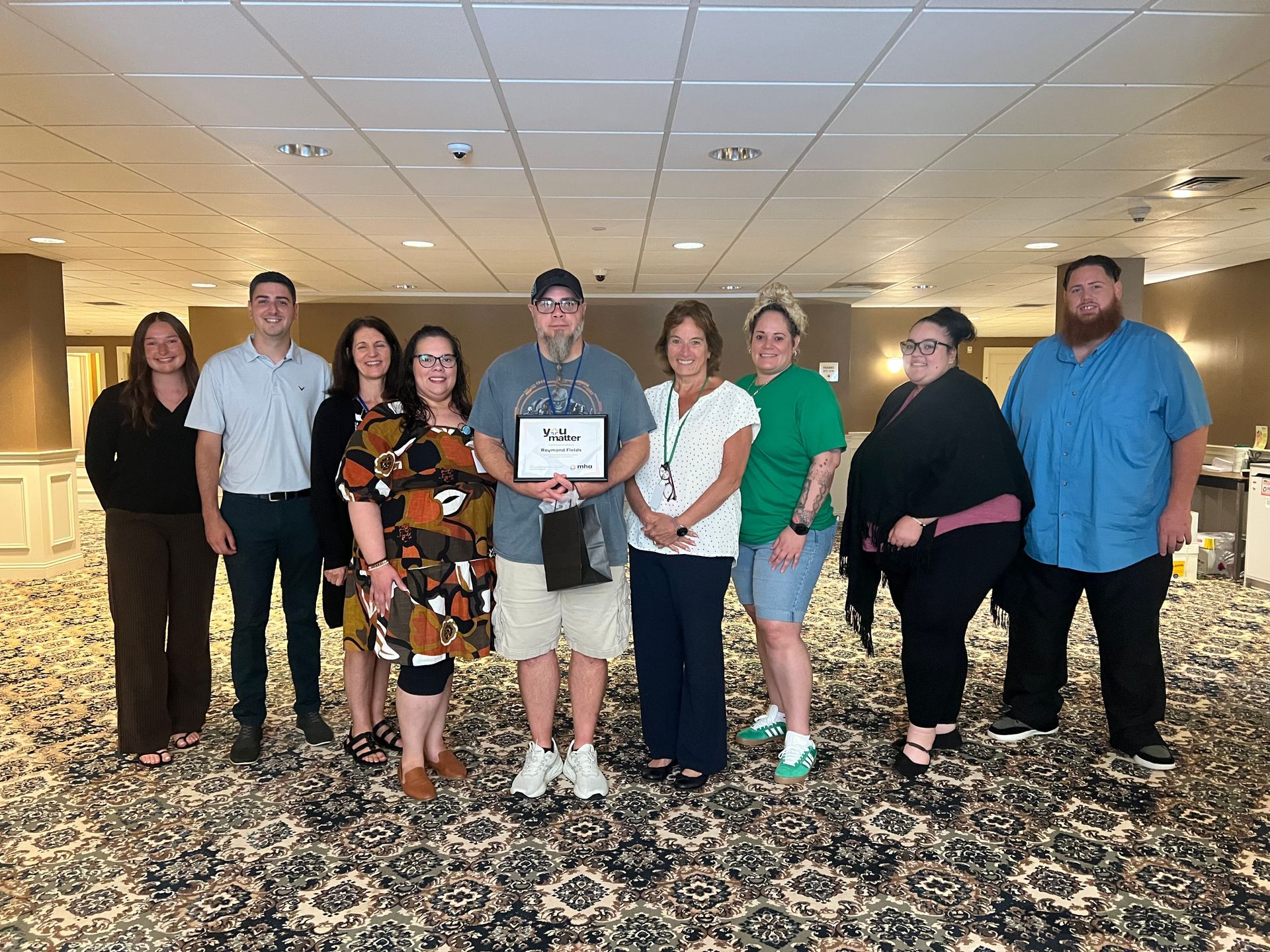Deciding How the World Sees You- Disability Pride Awareness Month

Published: July 2024
James was an average Joe - a hard-working landscaper who enjoyed spending time with friends and family. One day, at the age of 26, he suffered a traumatic brain injury due to a vicious assault. This injury significantly impacted his ability to speak, move, and perform daily tasks. As a result, he now relies on a motorized wheelchair and requires daily assistance. His sudden injury led to anxiety and depression. Now, 34, James is a member of the New Way program at MHA, which supports individuals with acquired brain injuries (caused by strokes, degenerative diseases, substance overdose, etc.) and traumatic brain injuries (caused by car accidents, and other blunt force traumas) through residential and day programming. With the help of clinicians and occupational therapists, James is adjusting to his new life. He utilizes adaptive technology, such as a smartphone and iPad, to assist him with communication. James is also experimenting with speech applications like Alexa to control the electronics and lights in his bedroom.
The adaptive technology James uses is one of the many tools MHA’s New Way Services division is implementing into its programming. The division's Day Program, The Resource Center (TRC), has been experimenting with various forms of adaptive technology to enhance the rehabilitative process for program members. The program aims to promote independence through person-centered programming and encourages individuals to do as much as they can on their own, whether it’s cooking, cleaning, or walking.
This emphasis on using adaptive technology in rehabilitative programming has led New Way Services to hire a full-time Director of Adaptive Technology, Robert Goetting. Robert, who has an extensive background in adaptive technology therapy, wants everyone to change the way they think about and approach assistive technology. “Adaptive technology isn’t something that is done to people; it’s done with people. I ask our team to think about how they use technology every day to simplify and support their lives. Everyone uses adaptive technology in some way or form. These are good starting points when assisting our clients to develop their skills. Teach them what you already know,” he says.
Members at TRC have recently been experimenting with disability-friendly silverware and dinnerware, such as knives, forks, spoons, suction cup bowls, and cutting boards that are shaped and functional to fit the needs of each member as part of their weekly snack prep group. Some of the adaptive spoons and forks have a hinge at the top of the handle, as well as a hand strap that the person can adjust based on their needs. With the help of occupational therapy personnel and the direct care team, the group learns to use the adaptive kitchenware to create delicious treats like fruit salads and yogurt bowls. “The members love the snack prep group. They are so excited about their ability to prepare snacks and meals through this new equipment. They are re-learning independent skills as they grow into their re-life,” says TRC Director, Michael Boulay.
In addition to the adaptive kitchenware, TRC members have been exploring the use of MusicGlove, a sensor glove that is designed to assist in rehabilitative therapy using interactive music and user-controlled hand movements. Using the glove, members can play popular musical games such as Guitar Hero and Frets on Fire. Robert Goetting believes that the implementation of devices like MusicGlove in the programs is an essential asset for improving physical and cognitive skills. Goetting states, “There have been multiple studies that have demonstrated the effectiveness of MusicGlove in improving hand functions, motor skills, and functional gains such as opening a door, washing dishes, typing, etc. The technology is developed specifically for home use following release from post-acute rehabilitation hospitals.”
MHA’s Resource Center will soon introduce Virtual Reality (VR) into their rehabilitation programs. The use of VR, such as the Meta Quest, will provide a wide array of immersive experiences for members where they can engage in life experiences that their physical limitations prevent them from doing, such as virtual historical sight-seeing, or going to the beach or the movies. The VR headset will also provide the potential for members to simulate and practice real-life situations such as taking a bus route to the grocery store or the doctor's office using photograph integration. Additionally, there are meditation and mind-game apps that members can explore through VR. “New Way and The Resource Center are really pushing the boundaries when it comes to using these devices. Using this tech provides endless possibilities that give control to the user. You can decide how the world sees you,” says Sara Kyser, Vice President of New Way Services.
Sara points out that motivation is often a significant challenge for individuals on the path to recovery. She mentions that the use of adaptive technology, such as VR and MusicGlove, has proven to be extremely helpful in motivating individuals to engage in their recovery. “Squeezing a tennis ball to strengthen hand muscles doesn’t have too much excitement to it, but if a person can accomplish the same goal while beating their previous high score on Guitar Hero, the time and repetitions pass quickly,” she explains. Although the research on the use of VR is limited, MHA aims to take the lead in implementing virtual reality in community-based settings.
With these resources available at their disposal, TRC members can try out the adaptive equipment at The Resource Center. If they find the equipment useful, they can work with their care teams to purchase similar equipment through insurance or a waiver.”
New Way and The Resource Center are truly transforming and redefining the way we think and approach traumatic and acquired brain injuries. With the assistance of adaptive technology, MHA wants to reassure the people we serve that they are being given the best possible care and that they are not defined by their disability or injury. MHA is a proud supporter and advocate for the disabled community. Through our residential, shared living, outreach, and day programming, we will continue to be a safe space and leading voice for those who are differently abled.
The Day Program at our Resource Center is part of MHA’s New Way division for individuals with physical and cognitive impairments resulting from a brain injury acquired after birth from trauma or a medical condition. The Day Program also serves individuals who have both a major medical disorder and a psychiatric diagnosis. The Resource Center is designed to help members improve mental and physical function and interact with peers while engaging in activities they enjoy and often suggest.
If you would like to learn more information on MHA’s The Resource Center, call 844-MHA-WELL or visithttps://www.mhainc.org/the-resource-center/
share this story





